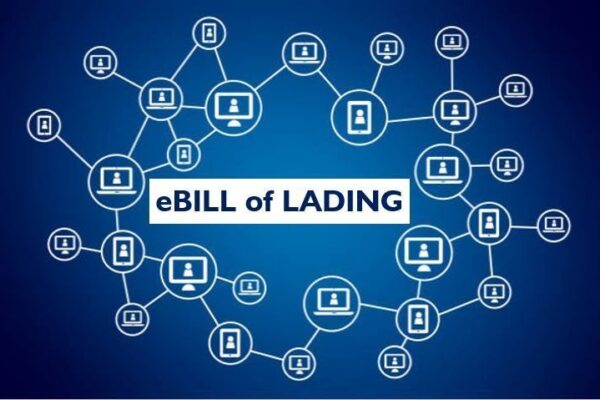The bill of lading (B/L) is said to be the most important transport document in international trade: a mainstay of the global supply chain that’s present from origin to destination. But for as much as shipping has changed over the decades, not much about the B/L has. Today, it’s still the same paper, time-consuming document it ever was.
In June this year, India led the way by digitalising its bills of lading and other trade documentation workflows, using a blockchain platform as part of its electronic Port Community System. Their CargoX Platform for Blockchain Document Transfer (BDT) was successfully launched, allowing global shipping stakeholders to transfer electronic B/Ls and other trade documents.
Now, Digital Container Shipping Association (DCSA) has, in conjunction with its member carriers, published data and process standards for the submission of shipping instructions and issuance of the B/L.
DCSA is a non-profit, independent organisation established in 2019 by nine of the world’s largest container shipping companies: Maersk, MSC, CMA CGM, Hapag-Lloyd, ONE, Evergreen, Yang Ming, Zim and HMM.  Â
DCSA B/L standards are aligned with the United Nations Centre for Trade Facilitation and Electronic Business (UN/CEFACT) multimodal transport reference data model, to ensure a global industry framework that accelerates digitalisation through a unified industry effort.
The eBL standard is the first DCSA standard to be eligible for self-certification under a new DCSA Compliance Programme, which will be published in January 2021. Any organisation that implements the eBL standard may demonstrate compliance by completing a self-certification checklist (SCC). Subsequent releases of DCSA’s eDocumentation initiative will include data and process standards for booking request and confirmation, arrival notice and release shipment.
The B/L is the essential legal document that facilitates negotiation, lending and risk reduction by performing three key functions:
- It is evidence of a contract of carriage
- It confirms receipt of goods
- It serves as the title to the goods
So, can eBL perform these functions while maintaining the integrity and legality that’s required? All the important players seem to think so, and we agree – it is the next logical step forward.
Talk to us here at Colless Young if you have any queries regarding shipping and its associated documentation. We are International Freight Forwarders and Licensed Customs Brokers. Colless Young is based in Brisbane and offers professional advice on air and sea freight through all Australian ports and airports. Our services cover every aspect of logistics, including exports, and clearance of import consignments through customs and quarantine, warehousing and trucking.

